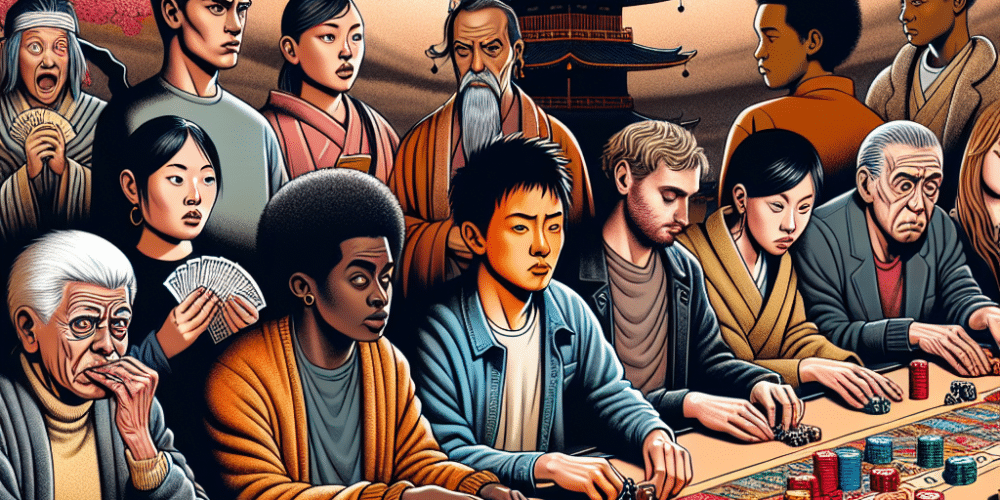Japanese authorities and independent experts are increasingly concerned about a growing trend among the nation’s youth: the rise in gambling addiction. This surge in gambling habits among young people is raising alarms about its potential long-term impact on Japanese society.
Recent reports indicate children and adolescents, particularly those as young as 15, have expressed a strong desire to acquire more money to sustain their gambling habits. In a startling incident, a young boy was apprehended after he devised a romance scam, defrauding a man in his 30s out of $8,800. The boy impersonated a young female college student and successfully swindled over 30 men of various amounts. This reflects a broader, troubling trend: a 13-year-old boy has been gambling at online casinos since his elementary school years, exemplifying the early onset of gambling problems among youths.
The national landscape reveals a broader issue, as a crackdown on online gambling intensifies. The National Police Agency estimates that 3.37 million Japanese people currently gamble at offshore online casinos, with 180,000 of these individuals aged between 10 and 19 — the demographic deemed most vulnerable. These formative years are critical, as habits developed during this period can profoundly affect young people’s futures. The progression from casual gambling to compulsive behavior can lead to dire financial and personal consequences, including an increased risk of suicidal thoughts.
Interviews conducted by the National Police Agency further underscore the severity of the problem, with 70% of interviewed minors admitting to developing an addiction. This statistic highlights the urgent need for intervention and preventive measures. Toshiaki Tsuneoka, an associate professor at Showa Medical University, emphasizes the gravity of the situation, noting, “Because online gambling is so easily accessible through a smartphone, there’s a real danger that children could become addicted before their parents even notice. We need stronger efforts to raise awareness that addiction can be treated through medical care and self-help groups.”
In response, Japan has intensified its crackdown on online gambling activities. The focus has expanded to include public figures such as athletes, actors, and news anchors to raise awareness about the illegal nature of the practice. This move aims to dismantle the perceived legitimacy that illegal gambling often enjoys among its participants.
However, the issue is not solely black and white. Critics argue that the crackdown alone may not suffice. They suggest that the government should also consider implementing more comprehensive educational programs in schools to address the root causes of gambling addiction. These programs could teach young people about the risks associated with gambling and equip them with strategies to resist peer pressure and manage their impulses.
Furthermore, some experts advocate for the introduction of stricter regulations on online gambling platforms. These could include mandatory age verification processes and spending limits for young users. By implementing such measures, the government could potentially curb the gambling activities of minors and protect them from the risks associated with such behavior.
The situation in Japan mirrors a global trend, as many countries grapple with the rise of online gambling and its impact on youth. The digital age has made gambling more accessible than ever, often bypassing traditional age barriers and parental controls. This presents a significant challenge for policymakers worldwide as they seek to balance the allure of digital entertainment with the need for safeguarding young and impressionable minds.
In the face of these challenges, there are calls for a collaborative approach. Stakeholders from various sectors, including healthcare professionals, educators, policymakers, and the gaming industry, must work together to create a safer environment for young people. By prioritizing the mental health and wellbeing of the youth, society can mitigate the long-term effects of gambling addiction and promote a healthier, more informed generation.
Nevertheless, the path forward is fraught with complexities. While some advocate for harsh penalties and increased surveillance to deter illegal gambling, others warn that such measures could drive the activity further underground. Instead, they recommend fostering an environment that encourages open dialogue and support for those struggling with addiction.
As Japan navigates this complex issue, the focus must remain on protecting its youth from the potential pitfalls of gambling addiction. By addressing the problem holistically, the nation can hope to curb the rising tide of youth gambling and safeguard the future of its younger generations.

David Garato is a luminary in gaming journalism, renowned for peeling back the curtain on the gaming world with his witty and insightful commentary. A decade into weaving stories from the pixelated edges of indie games to the expansive universes of AAA titles, David’s work is a thrilling blend of analysis and adventure. When not writing, he’s live-streaming, sharing his gaming exploits with an engaged and growing audience. David doesn’t just write about games; he lives them, making him a trusted guide in the gaming community.
















